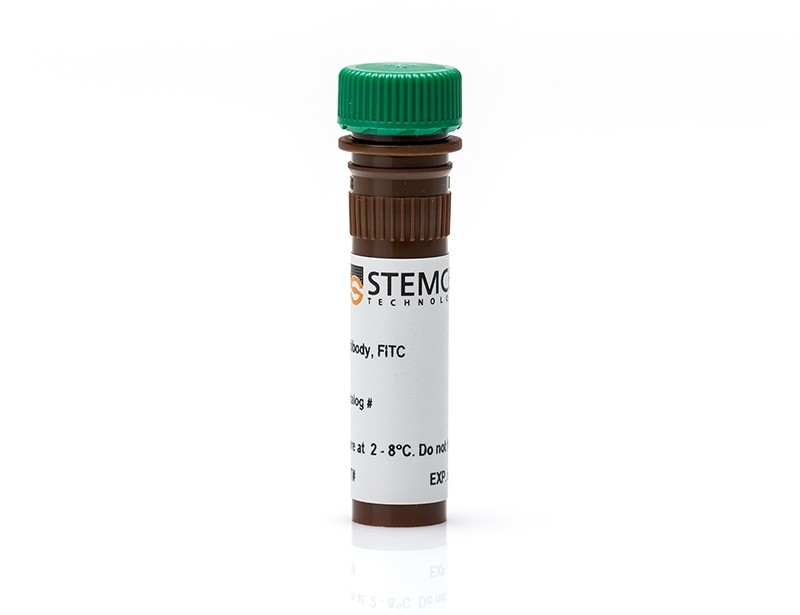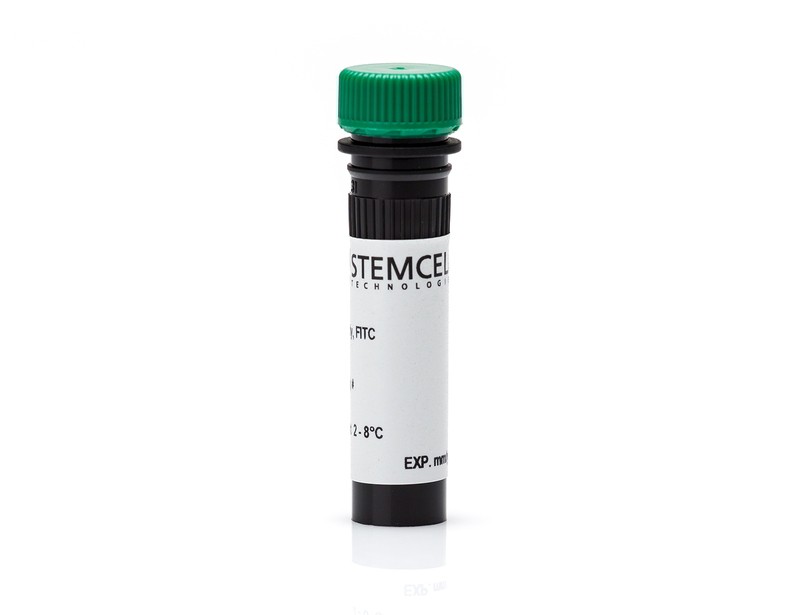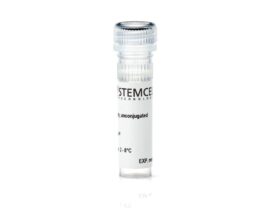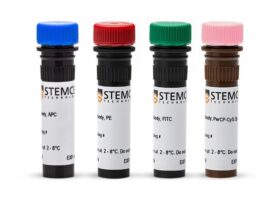
Overview
The MoP9 antibody reacts with CD14, a 53 – 55 kDa glycosylphosphatidylinositol (GPI)-anchored transmembrane glycoprotein expressed at high levels on the surface of peripheral blood monocytes and macrophages, and at lower levels on granulocytes. An approximate 10-fold difference in expression levels between monocytes/macrophages and granulocytes makes CD14 a useful marker for distinguishing these cell populations. CD14 is also found on tissue macrophages, Langerhans cells, and dendritic cells. CD14 functions as a high-affinity receptor for complexes of lipopolysaccharide (LPS) and serum LPS-binding protein and modulates LPS-dependent signal transduction during the immune response to gram-negative pathogens by acting as a co-receptor for TLR 4 and MD-2. This triggers activation of NF-κB, cytokine secretion, and induction of the inflammatory response. Two soluble forms of CD14 have also been described (~48 and ~55 kDa).









